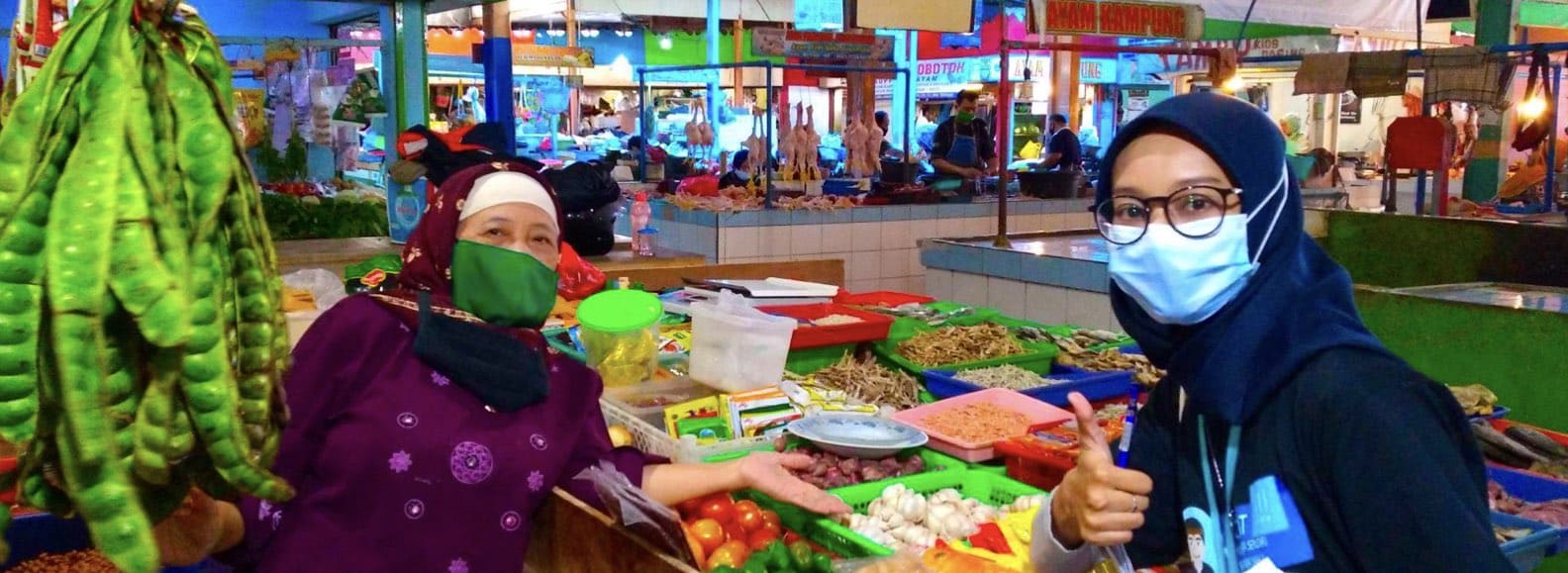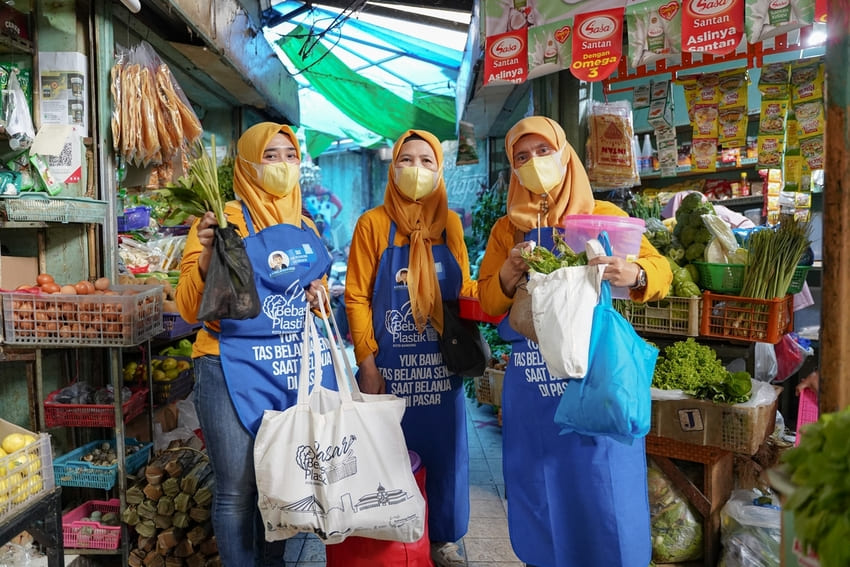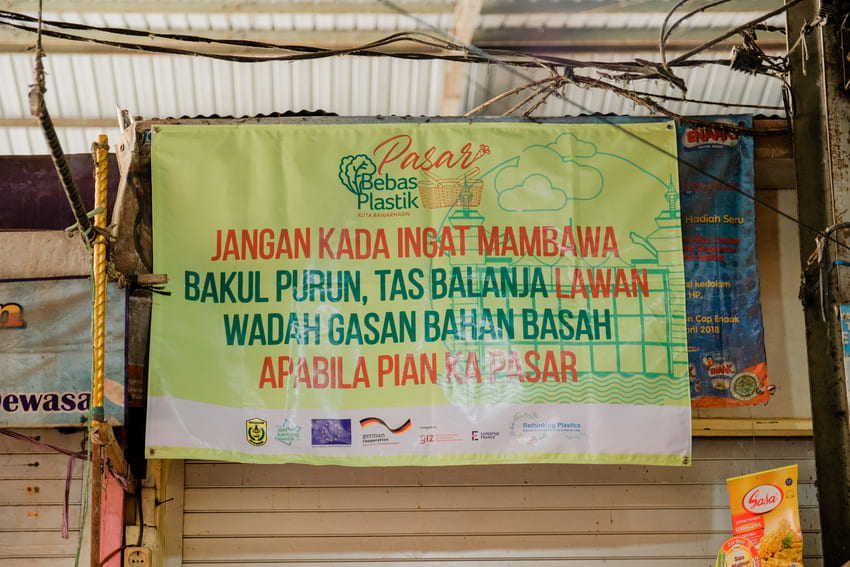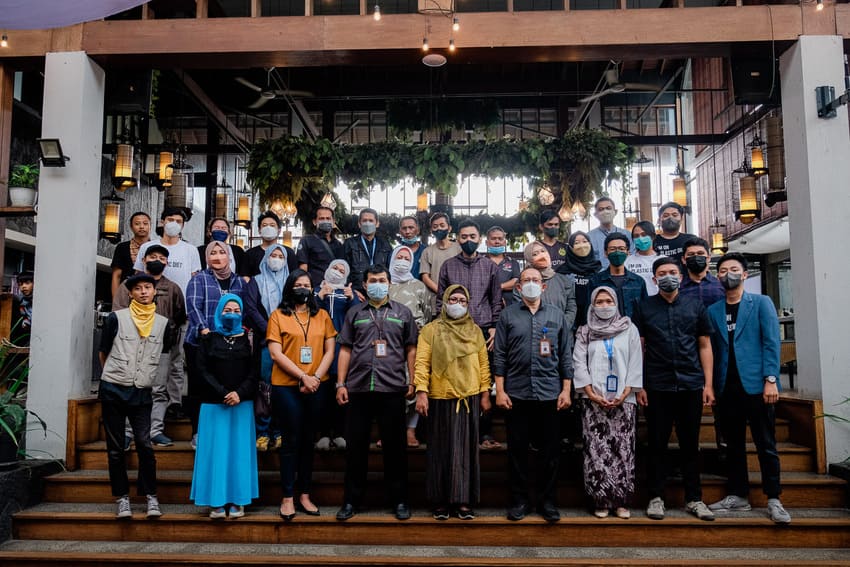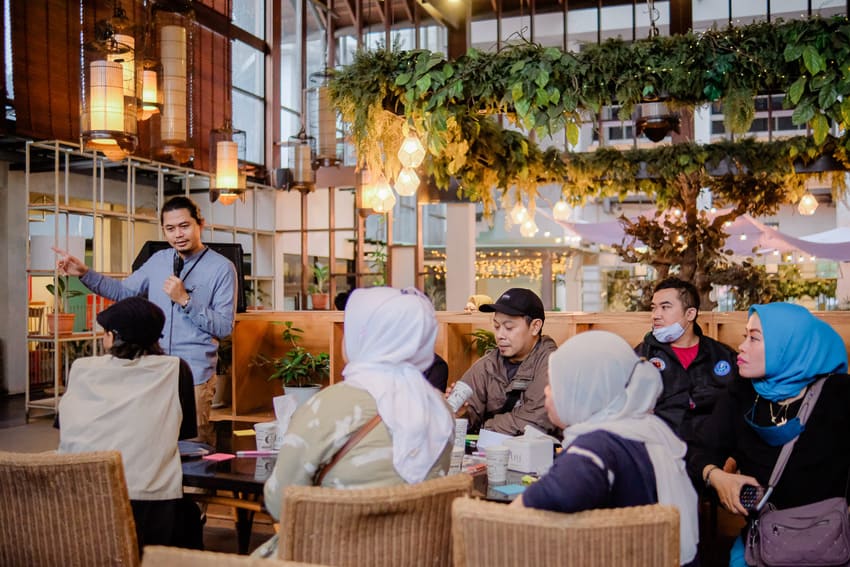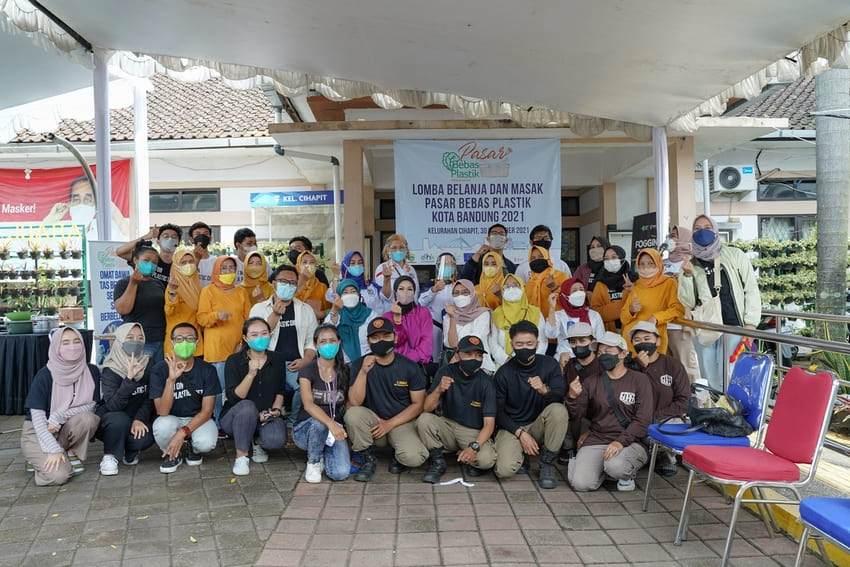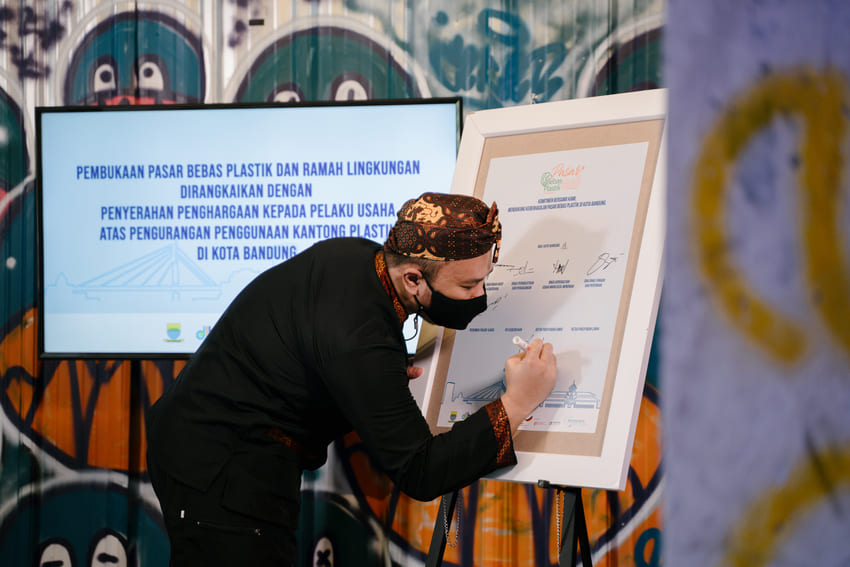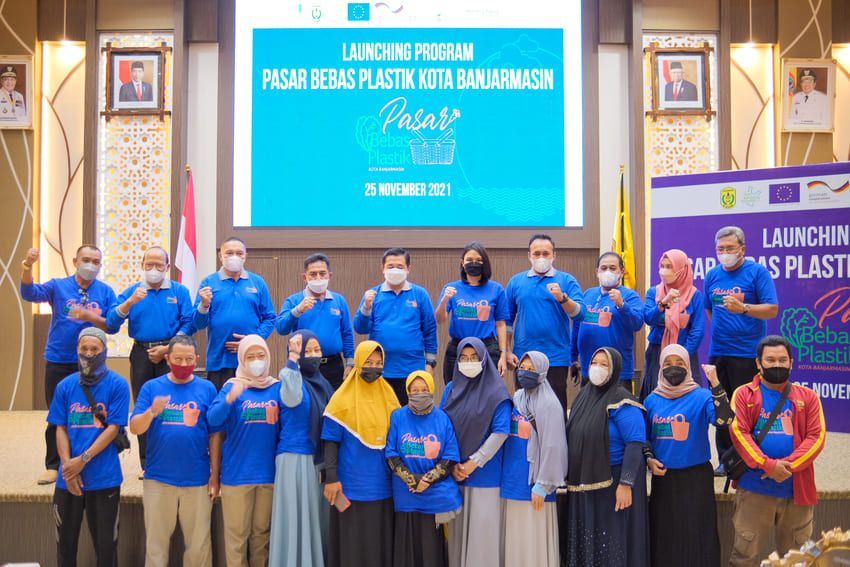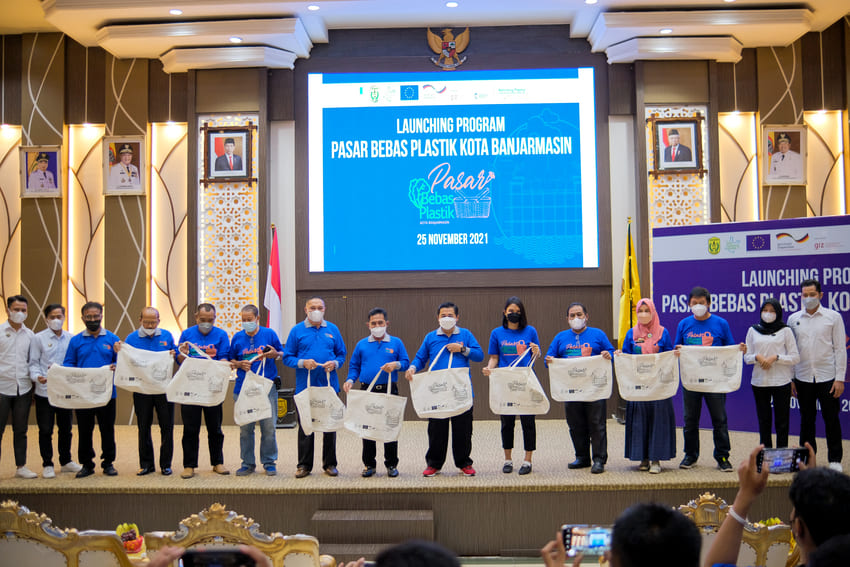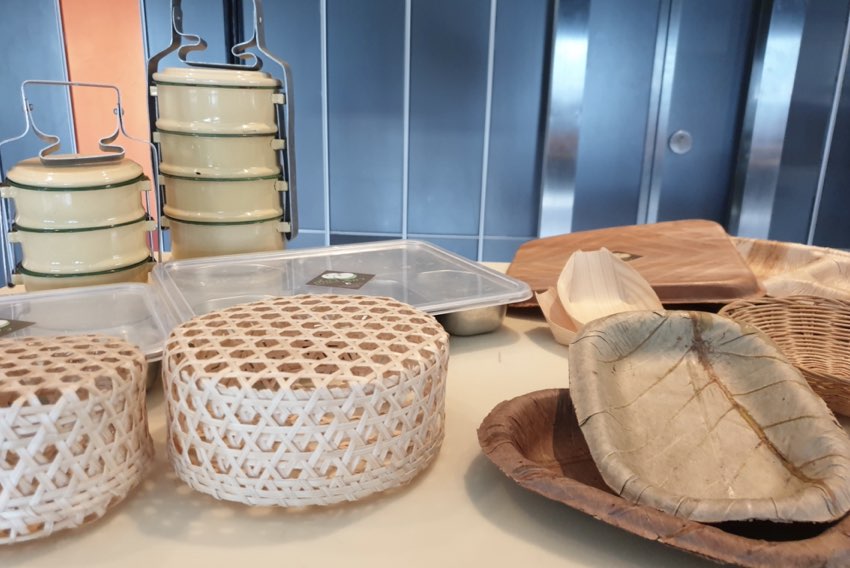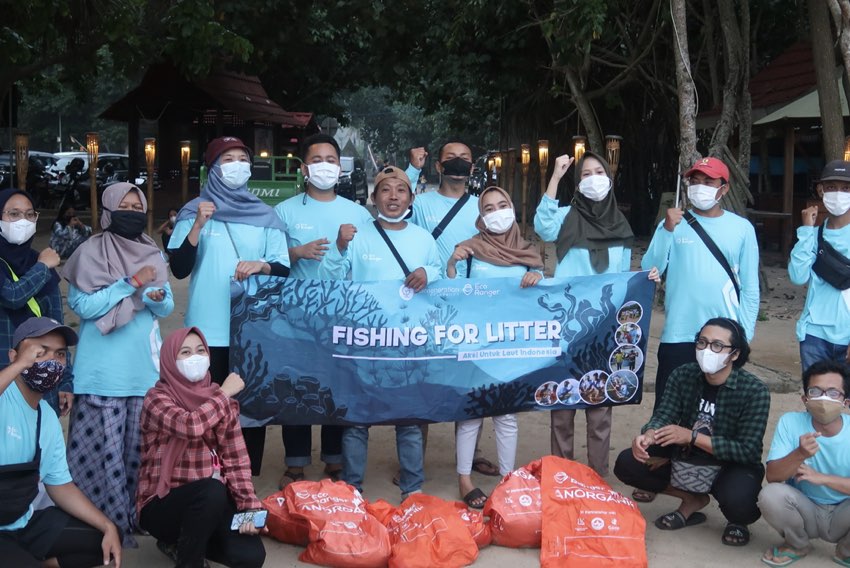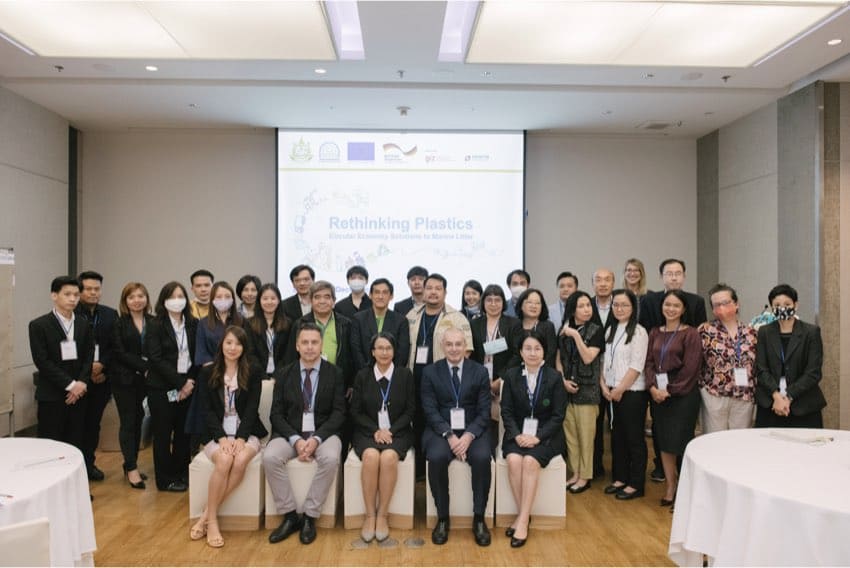Less Plastic Waste in Indonesian Markets
From fruit and vegetables to meat, fish and spices, traditional Indonesian markets offer everything the heart – and stomach – desires. For decades, Indonesians have bought their food and household items at traditional markets. But until recently, people rarely asked for a plastic bag when purchasing items.
Nowadays, almost everyone does. In Bandung, the fourth biggest city in Indonesia, nearly 70% of all single-use plastic bags come from traditional markets. This pilot project aimed to free traditional markets in the cities of Bandung and Banjarmasin from single-use plastics such as plastic bags, bin liners, wrapping and cutlery. To kickstart this change, we worked with three groups: market vendors, who would offer alternatives to single-use plastics, customers, who would bring re-usable bags or wrapping with them when shopping, and governmental actors, who would support the initiative by introducing new regulations.
WHAT HAVE WE ACHIEVED IN 17 MONTHS?
1. Changing habits one stall at a time
Banjarmasin was the first city in Indonesia to officially restrict the use of plastic bags in traditional markets. To make this new policy a reality, we worked with hundreds of vendors, exploring how to serve their customers without single-use plastics. We supported 350 vendors in Banjarmasin’s markets Pekauman and Pandu, and 290 vendors in the markets Kosambi and Cihapit in a second city, Bandung. From the beginning, we engaged market managers, traders and couriers in our activities. In all four markets, the initiative was met with great enthusiasm. Market vendors realised that they could save money by not providing plastic bags and handed out up to 27% fewer single-use plastic bags after participating in our project activities. Additionally, we organised plastic-free shopping challenges and other information programmes for hundreds of customers. Shoppers reacted well: between 13% and 42% started carrying multi-use bags when shopping at one of the four markets, proving that habits can be changed using the right approach and resources.
“Supermarkets and modern markets have one management body who sets the guidelines. For us, there was nobody in charge of the market that we could talk to. We worked with merchants from 120 stores, who are independent enterprises. We had to go out into the markets and persuade every person to change their behaviour. This took dedication, time and persuasion.”
xxx
2. Working with many actors to create long-term impacts
More than 75 cities in Indonesia have already issued local regulations to stop the use of plastic bags in the retail sector. However, implementing the policy in traditional markets is challenging as every market is managed by a different public or private entity. We involved actors on many levels to reach our objective of reducing single-use plastic at market stalls: from market managers and traders to community leaders and local campaigners. It was only by working together that we were able to achieve our goals. To support others, we have developed Standard Operating Procedures for Plastic-Free Markets, which can be used and adapted widely.
WHAT ARE OUR RECOMMENDATIONS FOR SIMILAR PROJECTS AND NEXT STEPS?
- Build a personal relationship with traders – the main actors in a plastic-free market – in order to change their behaviour and the system. Visit each trader in person because they cannot leave their stalls to join educational workshops.
- Involve local stakeholders, such as market managers, vendors and community leaders, in and around the market from the outset. Enthusiastic volunteers – who speak local languages – can act as local champions.
- Carry out regular awareness-raising campaigns for customers. You need visual information to create the right atmosphere for the plastic-free market programme.
- Identify characteristics for each traditional market. You can use our Standard Operating Procedures for Plastic-Free Markets but they need adapting as every market is different. At some markets, regular customers shop using multi-use plastic containers; at others, vendors need a reliable supply of alternative packaging to replace single-use plastic. You need to provide information and encouragement and it takes time and patience to spread this approach to other markets and change the habits of vendors and shoppers nationwide.
- Get support from government actors, such as ministries and local authorities, in order to strengthen the legal basis for restricting single-use plastic, issue official regulations and align programme activities with local legislation and government goals. For example, we supported the administrations of Bandung and Banjarmasin in phasing out plastic bags and limiting other single-use plastics at source.
- The Indonesian Ministry of Environment and Forestry welcomed this project. It will continue engaging with Bandung City Government about providing financial incentives to traditional vendors who want to stop providing single-use plastic, particularly plastic bags. Based on the project’s experiences, the Indonesia Plastic Bag Diet Movement (GIDKP) will continue to cooperate with the Ministry of Environment and Forestry on a planning document for single-use plastic waste reduction from retail, with the support of third-party financing.
Watch project videos and event recordings on YouTube:
- Belanja Online Bebas Plastik di Pasar Tradisional Kota Bandung - YouTube
- Selebrasi Pembelajaran Kampanye Pasar Bebas Plastik di Bandung dan Banjarmasin - YouTube
- Live Stream Diet Kantong Plastik - YouTube
- Online Dialogue: Policies and Initiatives For Reducing Single-use Plastics in Indonesia and Europe - YouTube
- Setahun Bersama Pasar Bebas Plastik Banjarmasin - YouTube
- Setahun Bersama Pasar Bebas Plastik Kota Bandung - YouTube
- Belanja Bebas Plastik di Pasar Banjarmasin - YouTube
- Kick Off Pasar Bebas Plastik di Kota Bandung (Teaser) - YouTube
- Rampok Plastik di Pasar Kosambi Bandung - YouTube
Implemented by: The Indonesia Plastic Bag Diet Movement – Gerakan Indonesia Diet Kantong Plastik (GIDKP)/ https://dietkantongplastik.info/
Facebook: https://www.facebook.com/DietKantongPlastik/?fref=ts
Instagram: https://www.instagram.com/iddkp/
Twitter: https://twitter.com/idDKP
YouTube: https://www.youtube.com/user/idDKP

